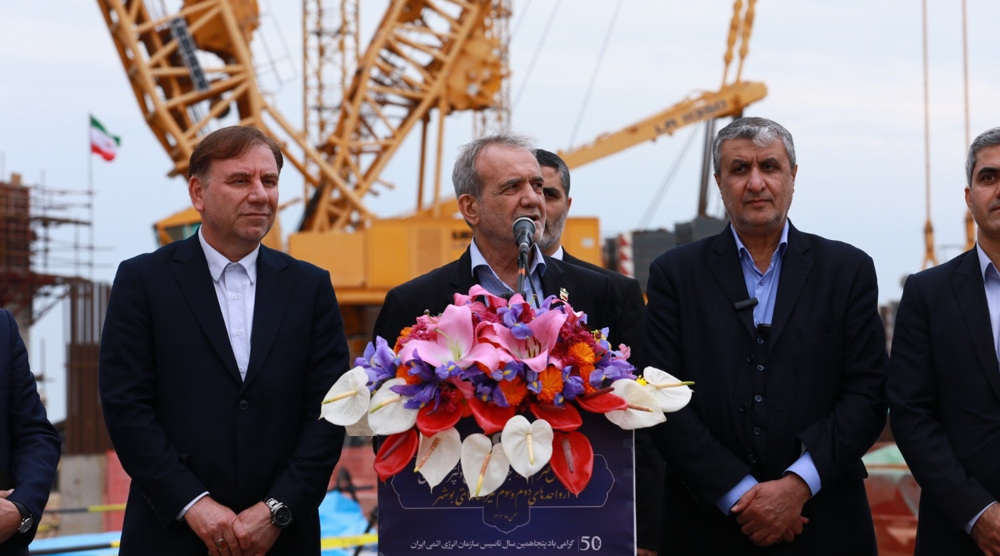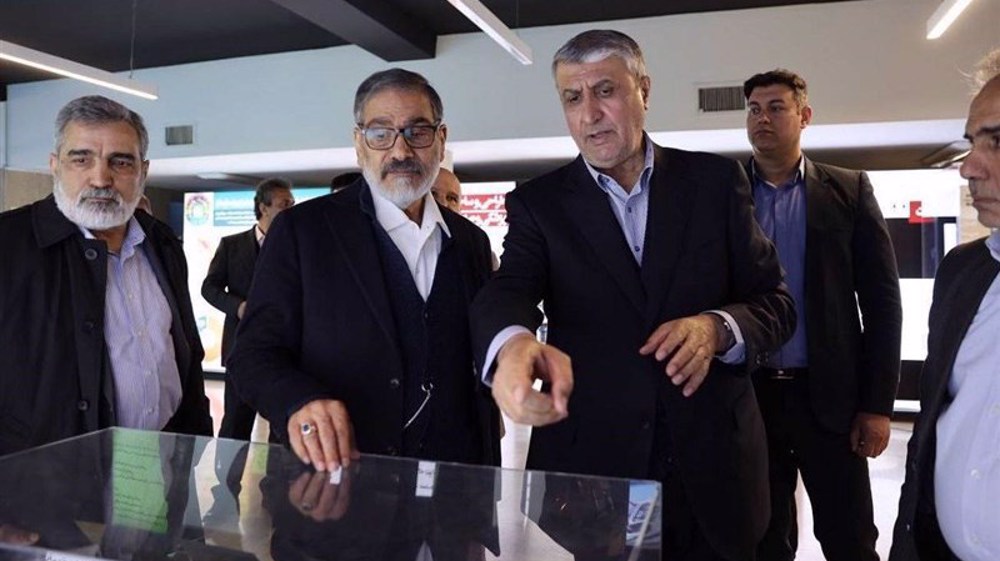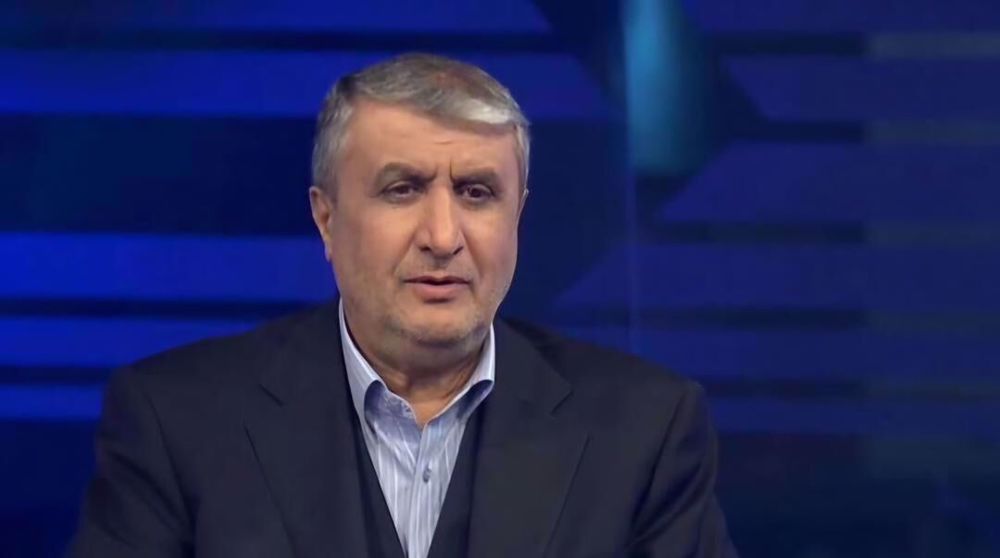Iran will adhere to nuclear deal even if US withdraws, AEOI chief says
Iran plans to adhere to its nuclear deal with world powers regardless of any probable US decision to withdraw from the agreement, the head of the Atomic Energy Organization of Iran (AEOI) says.
“We are continuously assessing if this agreement benefits us, or if the price is too high to stay in the deal. If the United States pulls out of the agreement, but the rest of the countries stay committed -- namely Britain, France, Germany, China, Russia -- then Iran would most probably stick with the commitments to the agreement without the US,” Ali Akbar Salehi said in a Friday interview with Der Spiegel.
“But if the US leaves the treaty and Europe follows, then this deal will certainly collapse and Iran will go back to what it was before, and, technically speaking, to a much higher level. As a person who has taken part in these negotiations, I wouldn't like to see that happen,” he pointed out.
"I think our partners in this treaty have more to lose than we do" if the agreement falls through, the AEOI chief added.
Salehi referred to Washington’s new sanctions and pressures against Iran, saying, “The US is trying to poison the business environment. It discourages big banks and companies from working with Iran. It is fearmongering. But in reality they cannot accomplish much. There is a lot of rhetoric.”
The AEOI chief argued that the US refusal to waive Tehran’s nuclear-related sanctions constitutes “significant noncompliance” with the nuclear deal on their part.
'Boosting military capability Iran's right'
The official rejected US allegations against Iran over its ballistic missile program and noted that the Islamic Republic's military capability has nothing to do with its nuclear activities.
“If the US considers this an issue, then it is their problem. Nowhere in the nuclear agreement does it say that Iran does not have the right to develop its missile capacity. We are exercising our rights and it is the other side that is trying to interpret this as a provocative act,” Salehi pointed out.
Iran’s nuclear agreement, known as the Joint Comprehensive Plan of Action (JCPOA), was inked between Iran and the P5+1 countries — namely the US, Russia, China, France, and Britain plus Germany — in July 2015 and took effect in January 2016.
Under the deal, limits were put on Iran’s nuclear activities in exchange for the removal of all nuclear-related bans imposed on the Islamic Republic, among other things.

US President Donald Trump, who had made no secret of opposing the nuclear agreement in his election campaign, has threatened to “tear up” the agreement, calling it “the worst deal ever negotiated.”
In late August, the Trump administration sent US Ambassador to the UN Nikki Haley to Vienna to lobby with the International Atomic Energy Agency (IAEA) to request access to Iranian military sites as part of the deal, in spite of the fact that the IAEA has confirmed Iran’s compliance with the JCPOA in all its reports.
Tehran has repeatedly contended that Washington's demands for access to Iran’s military sites are aimed at politicizing the JCPOA and that issues pertaining to the Islamic Republic's defense capabilities are non-negotiable.
Trump has also set up a team of his White House confidants to present him with “options” other than certifying Iranian compliance with the deal to the Congress. Such certification is needed by US law every 90 days in order for the Congress to continue to withhold nuclear-related sanctions against Iran.
The Trump administration has twice so far certified Iran’s compliance with the deal. US media reports said Trump agreed to those certifications only “reluctantly.” All indications are that he wants to avoid a third certification.
The White House has been further pressuring US intelligence officials to produce intelligence that could be used to declare Iran in violation of the nuclear agreement.

Pezeshkian: If our nuclear centers are hit, we will build thousand others

Iran will defend its peaceful nuclear program 'with all its might’: Leader’s aide

Eslami: Iran's nuclear program completely transparent
Iran taps wealth fund to spend $1bn on subsidized food for households
Over 60 British MPs urge ban on imports from Israeli settlements
Netanyahu says ‘committed’ to Trump’s vicious Gaza scheme
Palestinians subjected to ‘severe torture’ in Israeli prisones: Euro-Med
Iran’s jobless rate down 0.4% y/y in Dec quarter to 7.2%: SCI
Hamas confirms senior military commander assassinated in Lebanon
Iran urges establishment of stability, sovereignty in Sudan: Qalibaf
Munich Security Conference chairman weeps over deepening division in NATO









 This makes it easy to access the Press TV website
This makes it easy to access the Press TV website